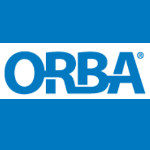Former Sprint Executives Sue U.S. for Allegedly Hiding EY Probe
Former Sprint Corp chief executive William Esrey and former chief operating officer Ronald LeMay sued the United States government for allegedly concealing its investigation into accounting firm Ernst & Young LLP’s promotion of tax shelters sold to the executives, Reuters is reporting.
The suit involves a 2002 Internal Revenue Service investigation into Ernst & Young’s promotion of tax shelters to its clients, including the two executives and settled the audit with EY in July 2003, without informing the executives, the lawsuit said.
The plaintiffs alleged that the IRS helped EY conceal the details of investigation from them, which meant they could not defend themselves against allegations by Sprint about their participation in the EY-promoted tax shelter schemes, Reuters reports.
 Will you or your law firm practice be affected by this week’s compromise by Congressional leaders regarding taxes and deductions if it becomes law (which is currently anticipated)?
Will you or your law firm practice be affected by this week’s compromise by Congressional leaders regarding taxes and deductions if it becomes law (which is currently anticipated)? Ernst & Young has posted a free on-demand webinar on a converged standard for recognizing revenue under U.S. GAAP and IFRS introduced during 2014.
Ernst & Young has posted a free on-demand webinar on a converged standard for recognizing revenue under U.S. GAAP and IFRS introduced during 2014. North American Windpower has published an article discussing a new notice from the Internal Revenue Service setting performance and quality standards that small wind turbines must meet in order to qualify for the 30% investment tax credit.
North American Windpower has published an article discussing a new notice from the Internal Revenue Service setting performance and quality standards that small wind turbines must meet in order to qualify for the 30% investment tax credit. Ostrow Reisin Berk & Abrams, Ltd. will present a free seminar on Jan. 29, 2015, where speakers will be discussing topics focused on the manufacturing industry. The seminar will be held at the Union League Club of Chicago from 8:30 a.m. to 10:45 a.m. with breakfast included. The address of the seminar site is Union League Club of Chicago, 65 W. Jackson Blvd., Room 700, Chicago, IL 60603.
Ostrow Reisin Berk & Abrams, Ltd. will present a free seminar on Jan. 29, 2015, where speakers will be discussing topics focused on the manufacturing industry. The seminar will be held at the Union League Club of Chicago from 8:30 a.m. to 10:45 a.m. with breakfast included. The address of the seminar site is Union League Club of Chicago, 65 W. Jackson Blvd., Room 700, Chicago, IL 60603. A pair of Democratic lawmakers in the House and Senate have re-introduced legislation aimed at preventing the abuse of offshore tax havens by multinational companies, reports Accounting Today.
A pair of Democratic lawmakers in the House and Senate have re-introduced legislation aimed at preventing the abuse of offshore tax havens by multinational companies, reports Accounting Today. Billions of tax dollars are squandered in the United States every year because of a decades-old loophole in federal law that allows tens of thousands of businesses to do the wrong thing – simply because they’ve been doing it all along, reports the News Observer.
Billions of tax dollars are squandered in the United States every year because of a decades-old loophole in federal law that allows tens of thousands of businesses to do the wrong thing – simply because they’ve been doing it all along, reports the News Observer. Equifax Workforce Solutions will present a complimentary webinar about the latest developments in Washington affecting the Work Opportunity Tax Credit (WOTC) program.
Equifax Workforce Solutions will present a complimentary webinar about the latest developments in Washington affecting the Work Opportunity Tax Credit (WOTC) program.
